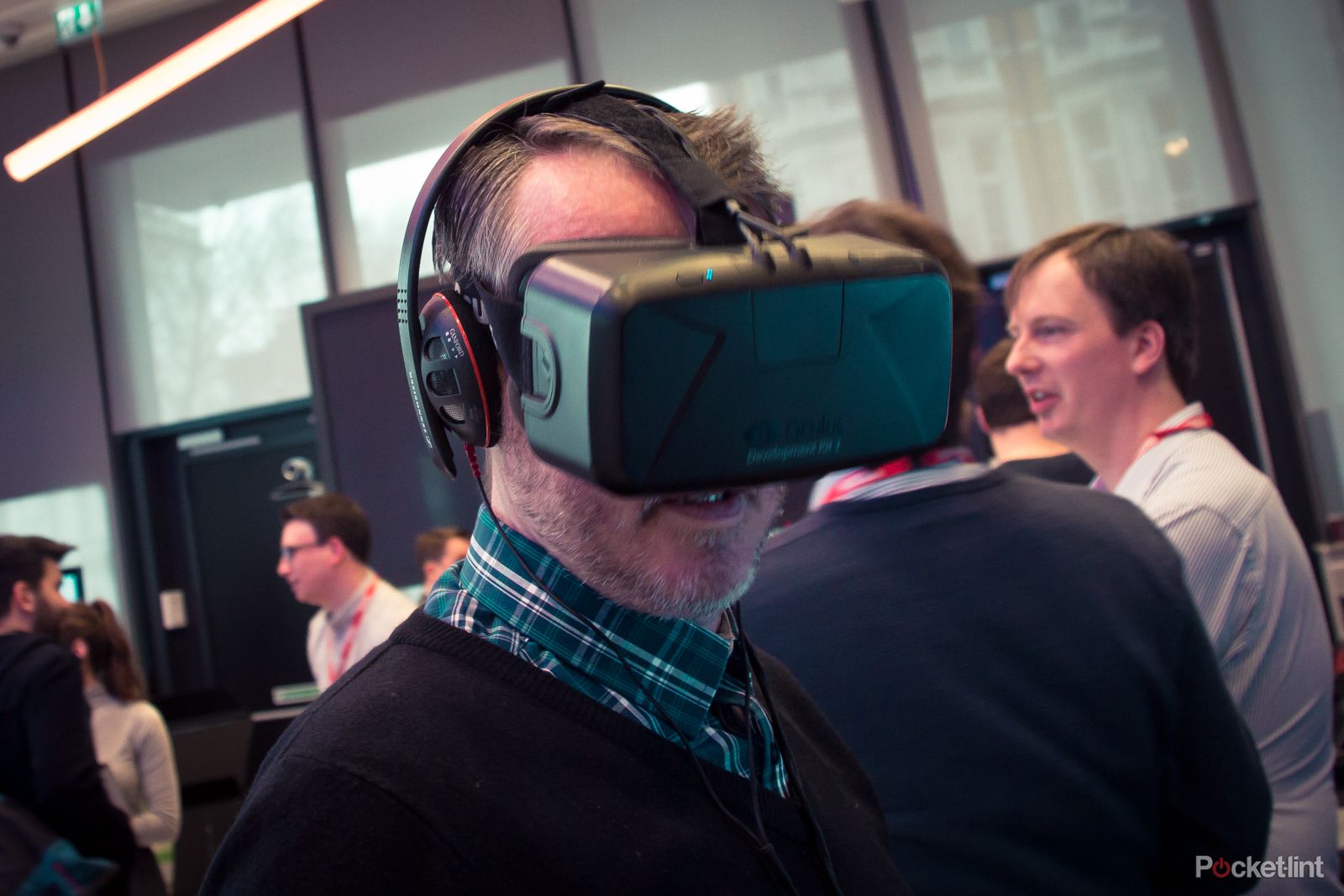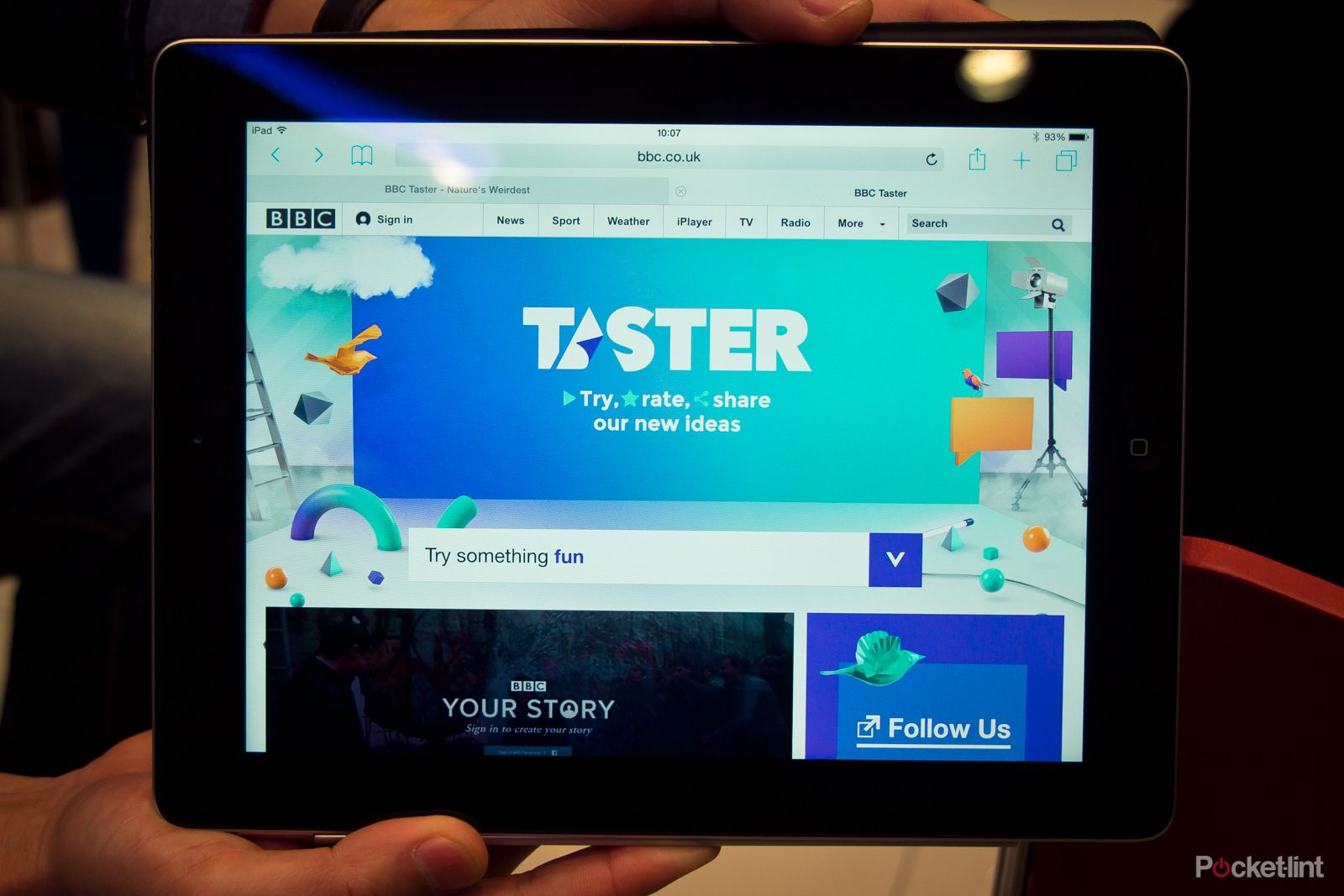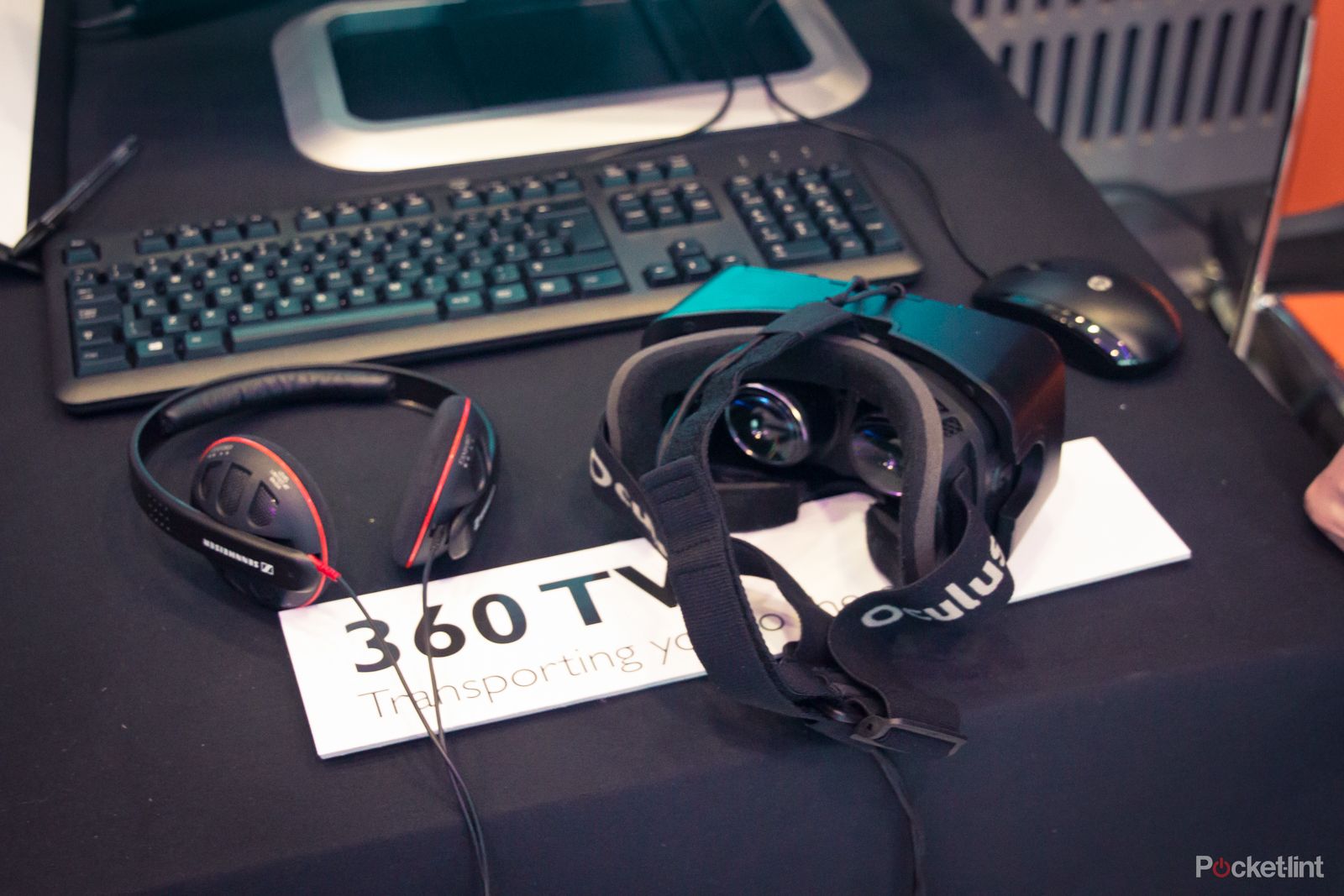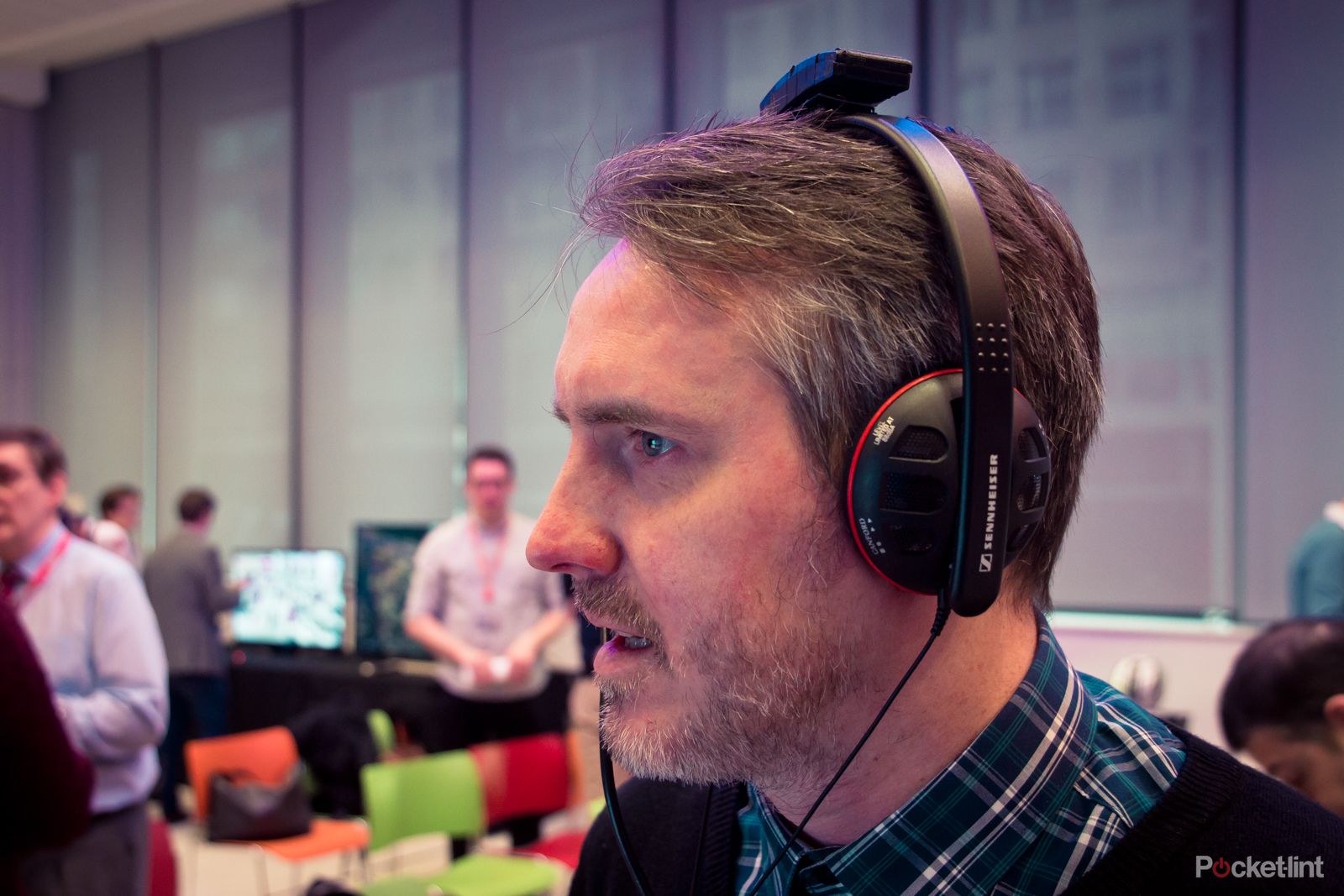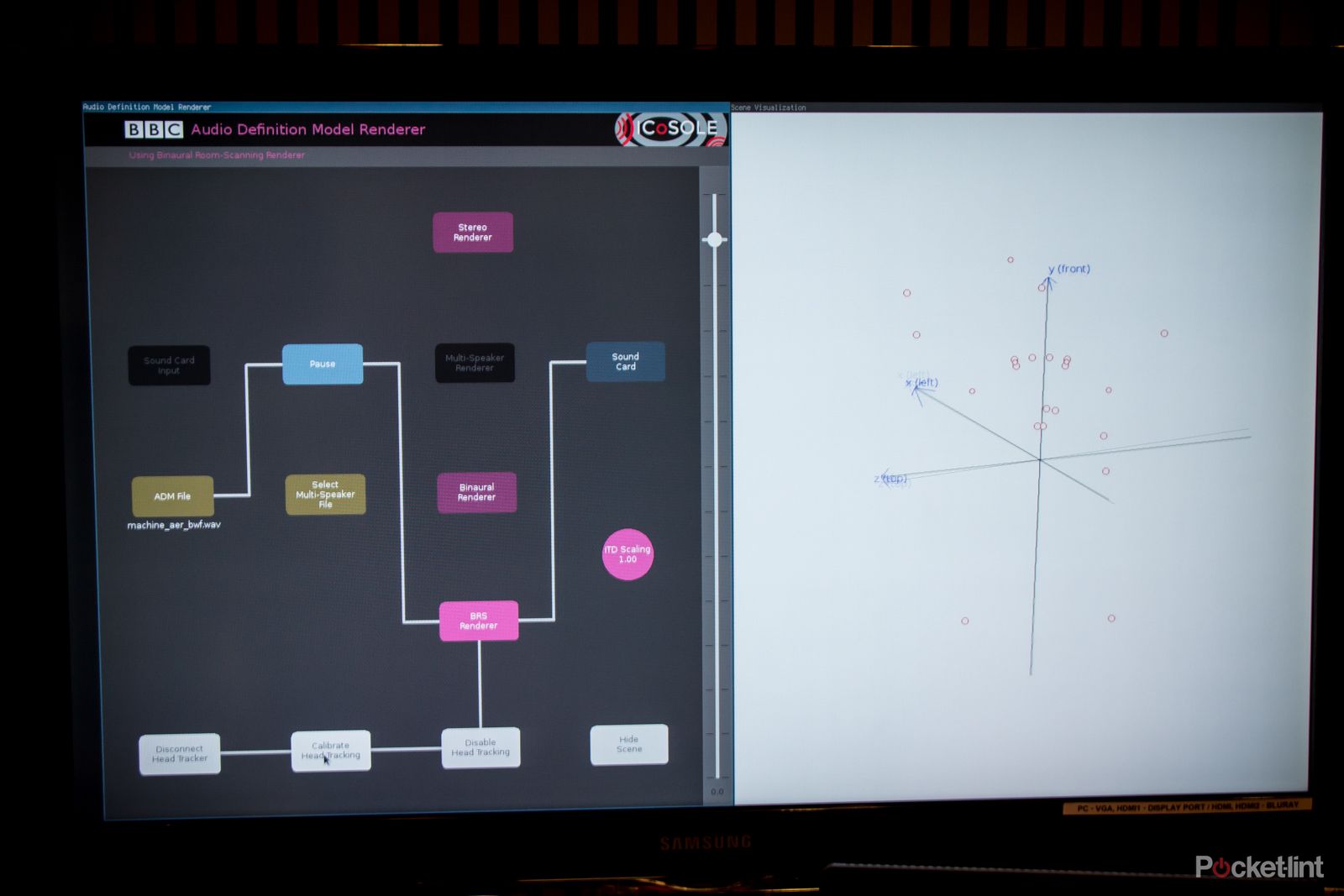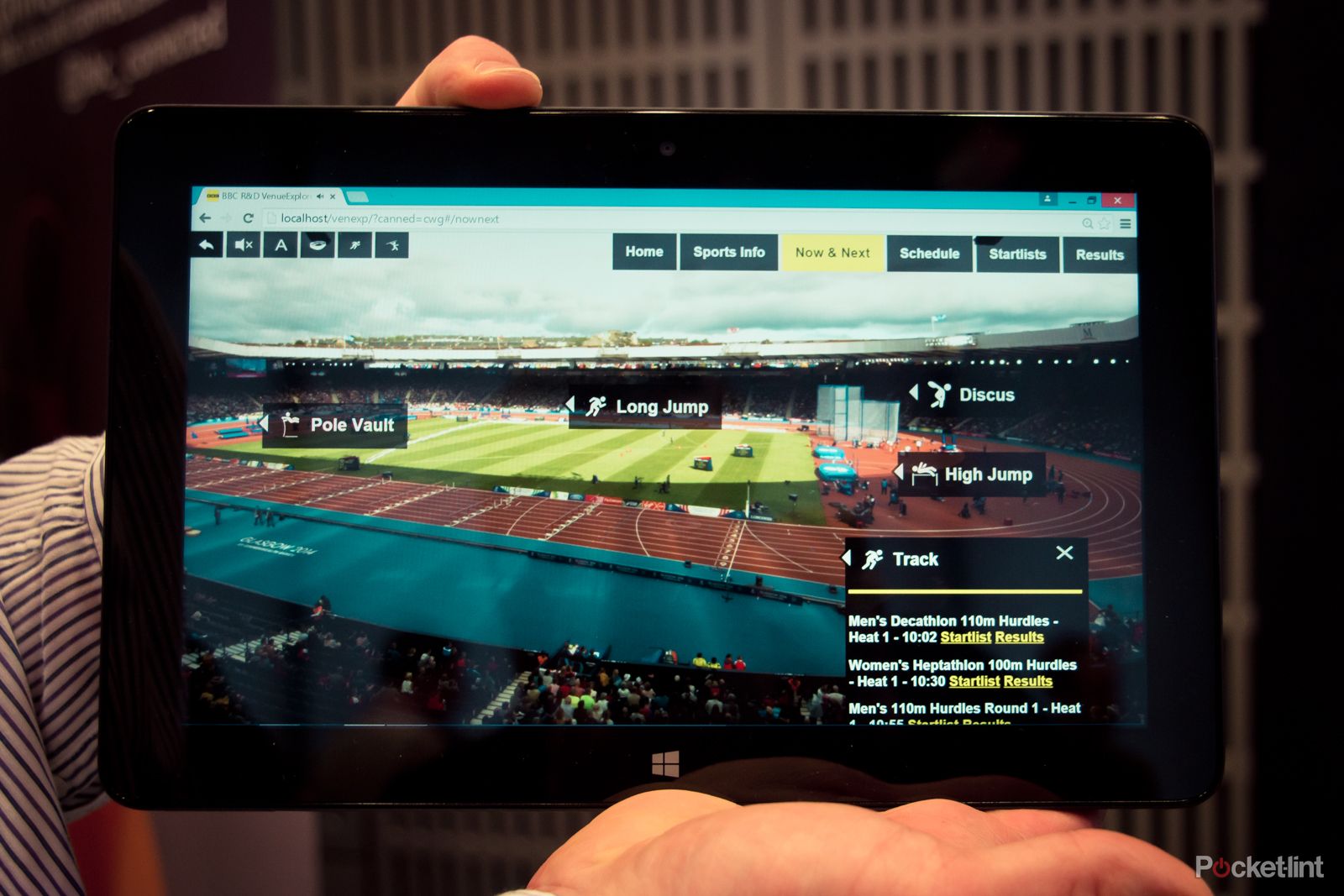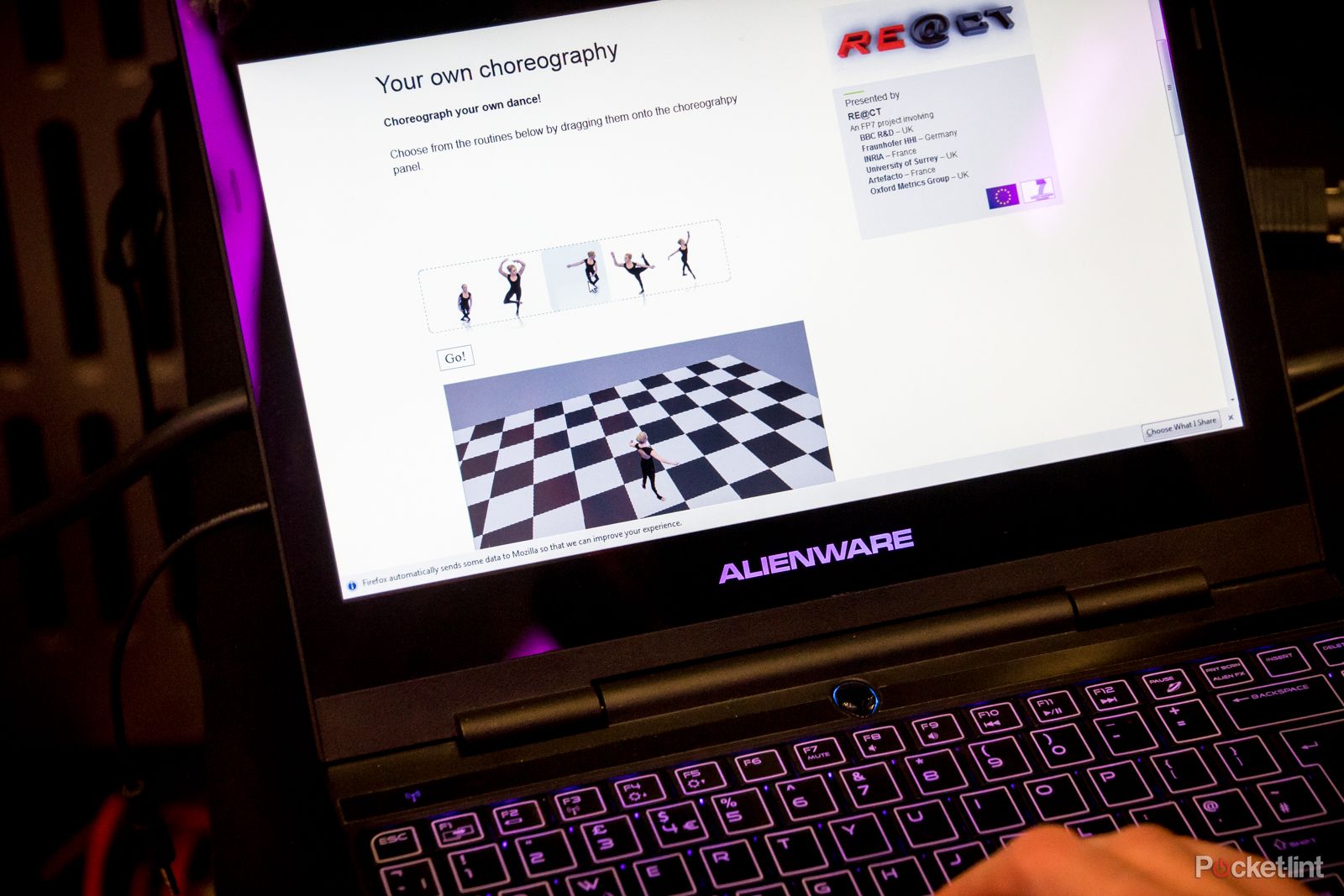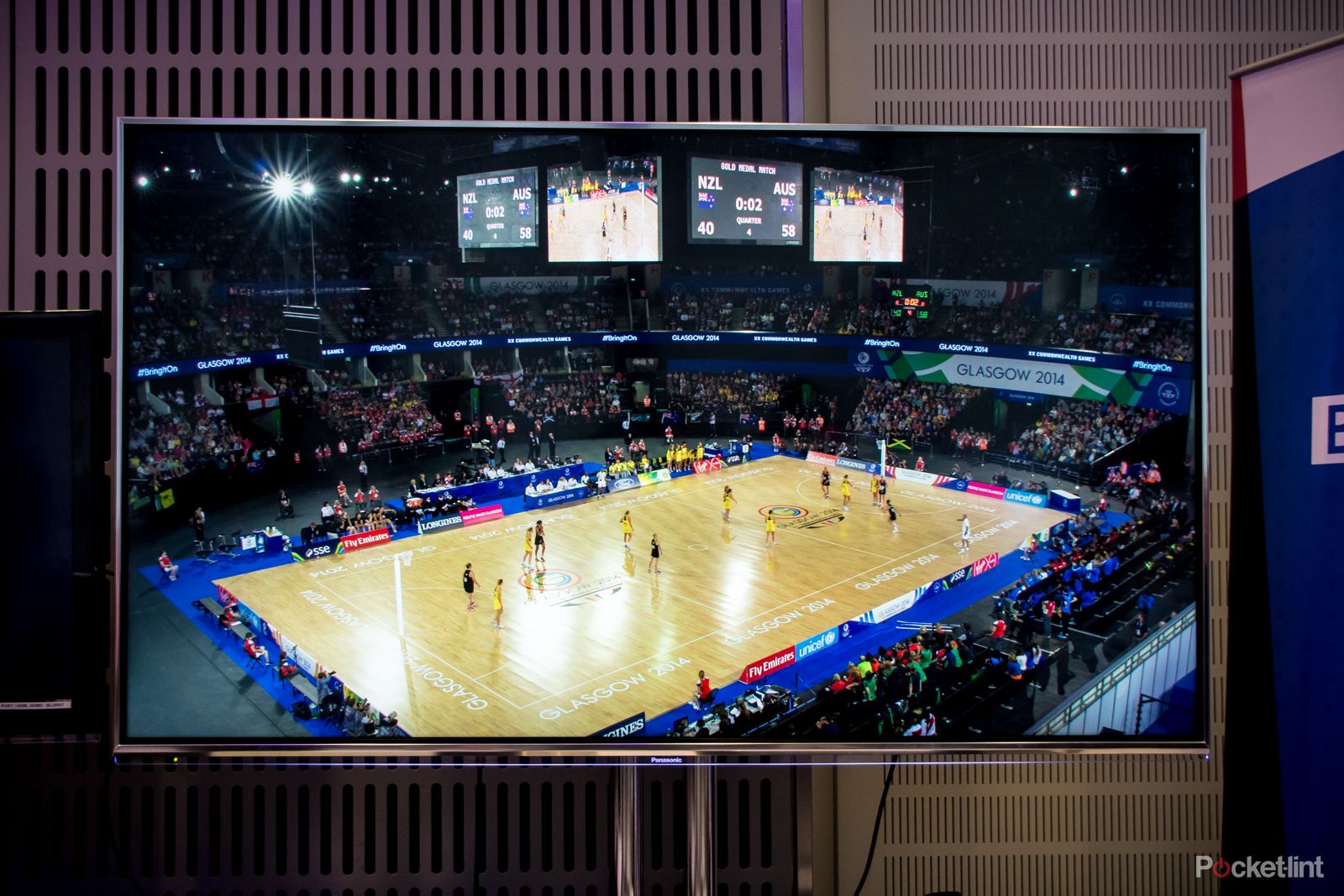The BBC has made the unprecedented step of opening up its innovations labs to public scrutiny in the form of BBC Taster, a web service that will host some of the corporation's most experimental digital projects before they have been rolled out to all devices, in order to get feedback on their popularity and usability.
And as well as interactive, internet-based entertainment concepts, this extends to some projects the BBC has been trialling behind closed doors for a while - even those that use dedicated hardware to realise their potential.
Pocket-lint was invited to BBC Broadcasting House in London to try out some of the bigger, perhaps more long term projects the Beeb's research and development labs have been working on. You can check out some of the more virtual projects yourself at bbc.co.uk/taster, but you'll have to wait a bit longer to taste the BBC's bigger projects. It's worth it though as some of them could change the way we watch TV or listen to radio forever.
That's why we've decided to detail five of the technological innovations we tried and explored here. One or two of them might never see the light of day in a consumer sense, but we were fascinated none-the-less. We think you will be too.
READ: You can sample the BBC's new digital innovations for free through BBC Taster
360 TV
Other firms are trialling the same thing, with Sky having filmed elements of a Sir David Attenborough documentary and director Spike Jonze having teamed with Vice News for a more immersive news broadcast, but virtual reality could be a game changer for general TV viewing.
The BBC has been examining how VR headsets, like Oculus Rift and Samsung's Gear VR, could be used to place the audience into a 3D environment and give them a greater sense of being in the location itself.
It trialled 360 TV at the Commonwealth Games in Glasgow last year and used a method of filming the action from all angles thereby creating a bubble of video that the viewer could look around in real-time. We tried the experience at the Beeb and liked what we saw - part of the tournament's gymnastics event - although it was quite apparent that camera placement is critical. Most of the time we ended up looking at the cameraman next to us rather than the action, for example.
Audio also plays a significant role in the immersion of the experience, and if the tech could be coupled with the next innovation we trialled, we could see a use for VR that might become even more popular than gaming.
Binaural sound
The best way to describe the Beeb's binaural sound technology is that it is virtual reality for your ears. Like a VR headset, the modified headphones have head tracking technology and the sound algorithms have the audio separated into a genuine 3D space. That means that wherever you are within the space, you will hear the sound coming from the exact location needed.
For example, if the sound mix places a number of sound points ahead of you and you turn your head to the left, you will hear the audio become more prominent in your right ear as you turn. Directors can also place the sound above your head, so it becomes louder and clearer if you slant an ear upwards. Or if you are listening to a concert, for example, and you turn to look behind you, you might hear somebody in the audience to the rear.
In terms of use, the system has been trialled with drama - Wolf Hall most recently - where you feel like you are in the middle of the scene as it progresses around you.
Naturally, the technology requires headphones to be used as home cinema surround sound - 5.1 and the like - already spaces audio around your head in a real soundscape, but it's impressive and as we say would make an ideal partner to a visual VR experience.
Venue Explorer
A digital technology that you will be able to try out soon as it will be available as part of the BBC Taster site in the near future is Venue Explorer. To complement sports coverage - especially major events - the Beeb will set up extremely high resolution cameras in the stadiums and record the footage for digital viewing later.
It did so at the Commonwealth Games, for example, and not only can you see wide angle rolling footage of the action (taken at Hampden Park) but you can then zoom into sections you'd like to see (through pinching the screen on the tablet demonstration). This will then gain resolution and become clearer after a brief moment for the stream to catch-up.
In addition, you will be able to see annotations and details about the individual elements on screen, which really helps for an athletics event, for example, as multiple things tend to happen at the same venue at the same time.
Re@ct Project
Rather than directly benefit your viewing of TV shows, the Re@ct Project could help online interactivity and creative learning in that it has found a way to motion capture and create lifelike 3D motion in a cheaper, less restrictive fashion than is currently used.
It basically uses cameras spaced around a blue screen room that, when combined can track people or objects within without the need for them to wear sensors or be intricately mapped. The example shown to us is of a ballet dancer going through her routines. Her actions were then mapped onto a 3D avatar which will be available to view in a complete 3D interactive space on the BBC Taster site from around March. You will be able to choreograph your own dance routine through dropping each element into a time line and the simulation will animated it for you.
Other applications for the Re@ct Project hardware and software include adding effects to a 3D moving model, such as drop shadows on the ground around them. Facial visualisation software is also being developed to more easily create computer animation without massive expense.
IP production
Another demonstration we were interested in might not have an immediate effect on your specific viewing experiences but could effect one of the most wide-ranging changes in TV broadcasting. It will lead to cheaper, more efficient ways broadcasters can deliver higher grade video - 4K Ultra HD included.
The BBC's trials and work in IP production basically applies directly to programme makers. At present, making a show - especially a live broadcast - can have huge costs simply to get the video from the cameras in the studio, through the production and sound galleries, and then into the broadcast centre where it beams to your television. Distribution of the digital signals can be achieved through a number of ways, including via satellite, and often the bandwidth rental can be very pricey.
The BBC's R&D lab has been trialling using the internet to serve the same function with some major breakthroughs in recent times. It trialled systems during the Commonwealth Games to great effect, managing to transmit 4K Ultra HD footage from venues in Scotland to remote locations. The system created was also able to downmix the streams to 1080p on the fly, so the production gallery could take more conventional feeds and not need dedicated, new equipment, yet the final mix was still in Ultra HD.
One benefit of this is that production staff won't necessarily need to be at the same location as the action, receiving the same stream no matter where they are in the country and with little or no latency. This leads to lower costs and the ability to transmit 4K video without prohibitive bandwidth rental. And ultimately, the IP route could end up being adopted for broadcast of 4K content to the consumers too.

